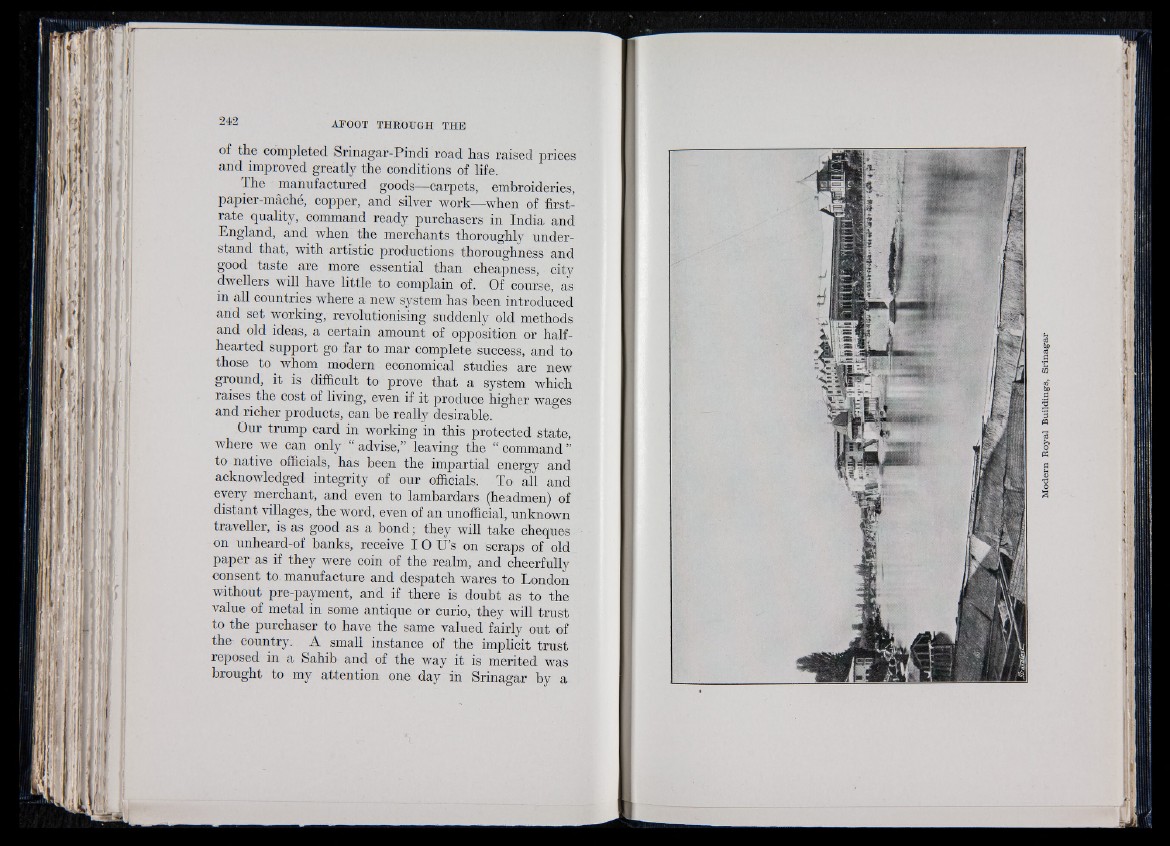
of the completed Srinagar-Pindi road has raised prices
and improved greatly the conditions of life.
The manufactured goods—carpets, embroideries,
papier-mache, copper, and silver work—when of first-
rate quality, command ready purchasers in India and
England, and when the merchants thoroughly understand
that, with artistic productions thoroughness and
good taste are more essential than cheapness, city
dwellers will have little to complain of. Of course, as
in all countries where a new system has been introduced
and set working, revolutionising suddenly old methods
and old ideas, a certain amount of opposition or halfhearted
support go far to mar complete success, and to
those to whom modern economical studies are new
ground, it is difficult to prove that a system which
raises the cost of living, even if it produce higher wages
and richer products, can be really desirable.
Our trump card in working in this protected state,
where we can only “ advise,” leaving the “ command ”
to native officials, has been the impartial energy and
acknowledged integrity of our officials. To all and
every merchant, and even to lambardars (headmen) of
distant villages, the word, even of an unofficial, unknown
traveller, is as good as a bond; they will take cheques
on unheard-of banks, receive IO TPs on scraps of old
paper as if they were coin of the realm, and cheerfully
consent to. manufacture and despatch wares to London
without pre-payment, and if there is doubt as to the
value of metal in some antique or curio, they will trust
to the purchaser to have the same valued fairly out of
the- country. A small instance of the implicit trust
reposed in a Sahib and of the way it is merited was
brought to my attention one day in Srinagar by a